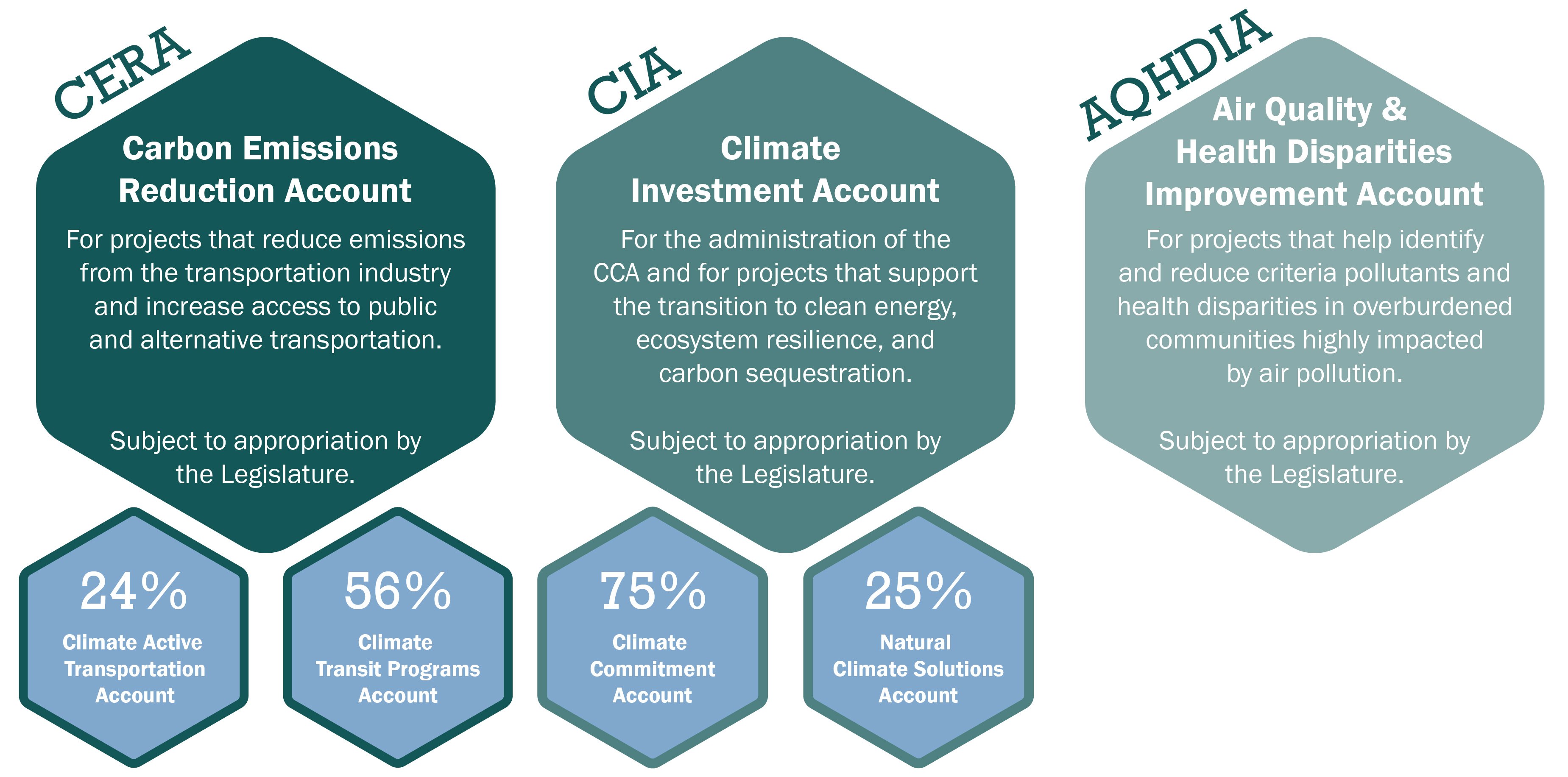Cap-and-Invest auction revenue
CCA Dashboard: How Climate Commitment Act funds are invested
The CCA Dashboard shows where and how agencies have spent funds from CCA accounts, including information about emissions reductions, supportive Tribal resolutions, and benefits to vulnerable populations within overburdened communities.
Revenue forecasts & investments
Ecology forecasts the amount of revenue we expect auctions to generate.
The Legislature uses those forecasts to designate specific amounts of money for specific purposes through the appropriations process.
Appropriated dollars flow through state agencies to projects around the state. And following each fiscal year, we report back to the Legislature about how auction revenue was invested.
Each forecast is Ecology’s best estimate of future revenue. Actual revenue may be higher or lower, depending on auction prices.
Appropriations are based on Ecology’s forecasts.
Account structure
Auction revenue is held in three primary accounts and four sub-accounts until it’s appropriated by the Legislature. Funds in each of these seven accounts are earmarked for specific types of projects.
Lawmakers eliminated the Active Transportation and the Transit Programs accounts in 2025. Residual funds following 2023-25 Biennium appropriations went into the Carbon Emissions Reduction Account.
Project types eligible for CCA funding
By law, revenue in each account must be used for certain types of projects.
Carbon Emissions Reduction Account (CERA)
The funds deposited in this account must be used for projects that focus on:
- Reducing transportation emissions
- Investing in alternatives and reductions to single occupancy passenger vehicles
- Investing in emissions reduction programs for freight, ferries, and ports
80% of CERA funds are annually transferred to two sub-accounts, which each focus on a more specific aspect of decarbonization within the transportation industry:
Climate Investment Account (CIA)
Auction revenue deposited in the Climate Investment Account (CIA) is first used to fund the administration of the Cap-and-Invest Program, but these expenses can't exceed 5% of total auction revenue.
Once administrative costs are covered, the remaining revenue is allocated to two sub-accounts focused on projects that increase climate resilience in Washington communities and ecosystems:
Air Quality & Health Disparities Improvement Account (AQHDIA)
Funds deposited in this account must be used for projects that address environmental justice and health inequity in the state, such as:
- Funding the expansion of Ecology's air monitoring network in overburdened communities highly impacted by air pollution
- The development and implementation of strategies to reduce health disparities in those communities
Funding environmental justice
The CCA requires that a minimum of 35% — with a goal of 40% — of auction revenue be used for projects that directly benefit vulnerable populations within overburdened communities. Additionally, 10% of auction revenue must be used for projects with Tribal support. To ensure this happens, the law directs the Environmental Justice Council to provide recommendations to the Legislature on which projects receive funding.
Ecology’s annual report detailing how auction revenue is spent will include information about whether these environmental justice requirements were met. And any agency receiving CCA funding must provide a report to the Environmental Justice Council documenting progress toward environmental justice and health equity goals.



